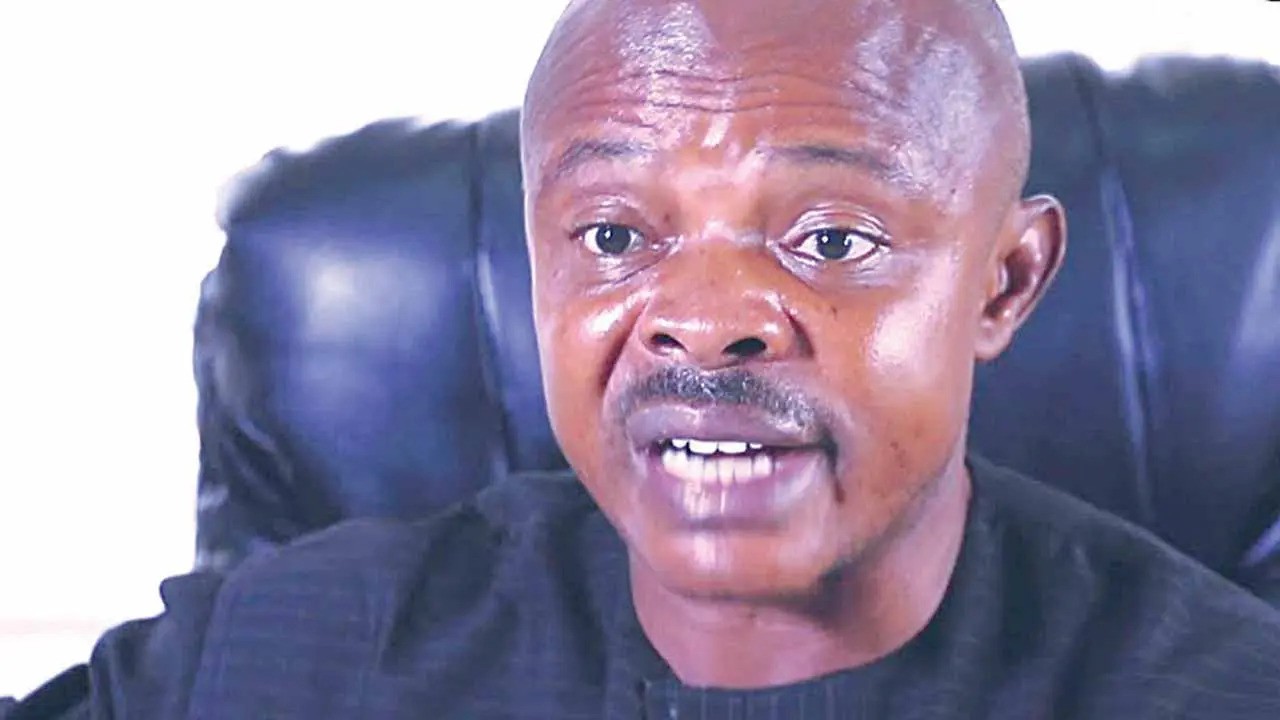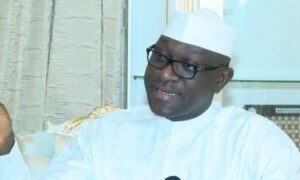


Minimum wage negotiations hit deadlock as Labour Unions reject FG’s proposed N48,000
…FG’s proposal an insult to Nigerian workers — NLC President
…Fulfill your promise to Nigerian workers — Ajaero tasks Tinubu on living wage pledge
By our correspondents
The Tripartite National Minimum Wage meeting resumed on Wednesday, but negotiations reached a deadlock due to the government’s perceived unwillingness to engage in fair discussions with Nigerian workers.
The Nigeria Labour Congress (NLC) and Trade Union Congress (TUC) expressed deep disappointment and frustration at the turn of events.
According to NLC National President, Joe Ajaero, the government’s proposal of N48,000 as the new minimum wage is an insult to Nigerian workers.
Ajaero stated that despite their best efforts to reach a reasonable agreement, the government and organised private sector’s actions have led to a breakdown in negotiations.
The labour unions are demanding a higher minimum wage to reflect the current economic realities and alleviate the suffering of Nigerian workers. The stalemate in negotiations may lead to industrial action, which could have far-reaching consequences for the economy.
He said, “Government’s proposal of a paltry N48,000 (forty-eight thousand Naira) as the Minimum Wage does not only insult the sensibilities of Nigerian workers but also falls significantly short of meeting our needs and aspirations.”
Ajaero noted that in contrast, the Organised Private Sector proposed an initial offer of N54,000.
“Though it is worth noting that even the least paid workers in the private sector receive N78,000 as clearly stated by the OPS, highlighting the stark disparity between the proposed minimum wage and prevailing standards further demonstrating the unwillingness of Employers and Government to faithfully negotiate a fair National Minimum Wage for Workers in Nigeria.
“Furthermore, the Government’s failure to provide any substantiated data to support their offer exacerbates the situation. This lack of transparency and good faith undermines the credibility of the negotiation process and erodes trust between the parties involved.
“As representatives of Nigerian workers, we cannot in good conscience accept a wage proposal that would result in a reduction in income for federal-level workers who are already receiving N30,000 (thirty thousand Naira) as mandated by law, augmented by Buhari’s 40 percent Peculiar allowance (N12,000) and the N35,000 wage award, totalling N77,000 only. Such a regressive step would undermine the economic well-being of workers and their families and is unacceptable in a National Minimum Wage Fixing process.”
Ajaero stated that the Labour Unions were forced to withdraw from the negotiations due to the government’s unsatisfactory proposal, but he emphasised that the Congress remains steadfast in its commitment to fighting for the rights and interests of Nigerian workers.
“In light of these developments, and to prevent the negotiation of a wage deduction, the Nigeria Labour Congress and Trade Union Congress have decided to walk out of the negotiation process. We remain committed to advocating for the rights and interests of Nigerian workers and will continue to engage in reasonable dialogue with the Government if they show serious commitment to find a fair and sustainable resolution to this impasse.”
He also called upon the Government to reconsider its position and come to the negotiation table with, “clear hands that reflect the true value of the contributions made by Nigerian workers to the nation’s development and the objective socioeconomic realities that confront not just Nigerian workers but Nigerians today as a result of the policies of the federal government.”
…President Tinubu must fulfill pledge of ensuring a living wage for Nigerian workers — NLC President
He further urged the government to work alongside Labour to finalise the N615,000 minimum wage as proposed by Labour.
“Together, in a reasonable dialogue, we can work to give Nigerian workers an N615,000 National Minimum wage as proposed by us based on evidence and Data. This will be in keeping with the pledge of the President; his Excellency Senator Bola Ahmed Tinubu’s pledge to ensure a Living wage for Nigerian workers.”
Recall that on January 30, 2024, President Bola Tinubu, conveyed by Vice-president Kashim Shettima, addressed a 37-member panel at the Council Chamber of the State House in Abuja.
This panel, comprising representatives from federal and state governments, the private sector, and organised labour, is tasked with recommending a new national minimum wage for Nigeria. Shettima emphasised the importance of swift deliberations, urging members to expedite the process and submit their reports promptly.
“This timely submission is crucial to ensure the emergence of a new minimum wage,” Shettima said.
VP Shettima also urged collective bargaining in good faith, emphasising contract adherence and encouraging consultations outside the committee.
The 37-man committee is chaired by the former Head of the Civil Service of the Federation, Goni Aji.
The committee had the terms of reference to ‘consult all stakeholders on the issue of national minimum wage and recommend a realistic and practical national minimum wage to the government.’
The Nigeria Labour Congress (NLC) and Trade Union Congress (TUC) have proposed various figures as a living wage for workers across the country.
This was made known during zonal public hearings held simultaneously on March 7, 2024, in six locations – Lagos, Kano, Enugu, Akwa Ibom, Adamawa, and Abuja.
According to reports, the NLC and TUC proposed different figures for each zone, citing the current economic realities and the need for a living wage. In the South-West, the NLC proposed N794,000, while the TUC suggested N447,000.
In the North-Central zone, workers demanded N709,000 as the new national minimum wage, while the South-South stakeholders proposed N850,000. In the North-West, N485,000 was proposed, and in the South-East, stakeholders demanded N540,000 as the minimum wage.
After considering the various proposals, the Organised Labour is set to recommend N615,000 as the new living wage for Nigerian workers. This move is aimed at ensuring that workers earn a wage that reflects the current economic realities and enables them to meet their basic needs.
The proposal is expected to be presented to the government for consideration and implementation.



